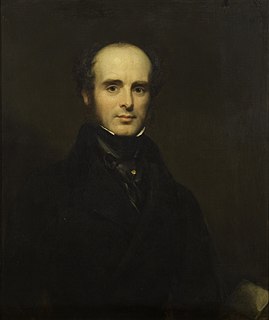
James Blundell was an English obstetrician who performed the first successful transfusion of human blood to a patient for treatment of a haemorrhage.

Sir Thomas Hope, 1st Baronet Hope of Craighall (1573–1646) was a Scottish lawyer, and Lord Advocate under Charles I.

Sir Robert Christison, 1st Baronet, FRSE FRCSE FRCPE, was a Scottish toxicologist and physician who served as president of the Royal College of Physicians of Edinburgh and as president of the British Medical Association (1875). He was the first person to describe renal anaemia.

Henry Bickersteth, 1st Baron Langdale, PC was an English law reformer and Master of the Rolls.
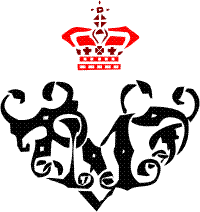
The Royal Medical Society (RMS) is a society run by students at the University of Edinburgh Medical School, Scotland. It claims to be the oldest medical society in the United Kingdom although this claim is also made by the earlier London-based Society of Apothecaries (1617). The current President of the 282d session is fourth year medical student Ms Hannah Patterson. The RMS is a professional society engaged in the advancement of medical knowledge and provision of assistance to medical students and professionals.

Rev. Dr. John Scudder Sr., M.D., D.D., founded the first Western Medical Mission in Asia at Ceylon and later became the first American medical missionary in India. He began what amounted to more than 1,100 combined years of missionary service there by 42 members of four generations of the Scudder family of missionaries in India.
Thomas PercivalFRS FRSE FSA was an English physician, health reformer, ethicist and author, best known for crafting perhaps the first modern code of medical ethics. He drew up a pamphlet with the code in 1794 and wrote an expanded version in 1803, Medical Ethics; or, a Code of Institutes and Precepts, Adapted to the Professional Conduct of Physicians and Surgeons in which he coined the expression "medical ethics". He was also a pioneering campaigner for public health measures and factory regulation in Manchester.
Archibald Robertson was a Scottish physician and medical author who had a notable naval career, followed by a long private practice.
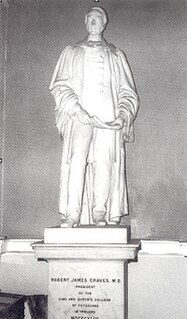
Robert James Graves, F.R.C.S. was an eminent Irish surgeon after whom Graves' disease takes its name. He was President of the Royal College of Physicians of Ireland, Fellow of the Royal Society of London and the co-founder of the Dublin Journal of Medical Science. He is also the uncredited inventor of the second-hand on watches.

William Alexander Greenhill was an English physician, literary editor and sanitary reformer.
Dr Angus Macdonald FRSE FRCPE, was a Scottish physician, obstetrician and lecturer at the University of Edinburgh. He served as President of the Edinburgh Obstetrical Society from 1879 to 1881.
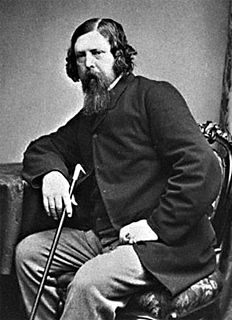
David Skae was a Scottish physician who specialised in psychological medicine.

Latham of Bradwall is a family whose seat was at Bradwall Hall, in the township of Bradwall, near Sandbach, England, with several notable members. The line is "a junior branch of the ancient Cheshire house of Lathom, of Lathom and Knowsley, which terminated in the heiress, Isabella Latham, who married Sir John Stanley, Knt., ancestor of the Earls of Derby". The family is not thought to be related to John Latham (1740–1837) the ornithologist, although this appears to be uncertain.

Charles James Blasius Williams was an English physician. He was an early adopter of new techniques of physical examination, and became known as a specialist in diseases of the chest.
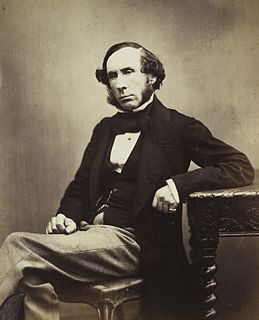
George Owen Rees was a Welsh-Italian physician.
John Clayton (1754–1843) was an English Independent minister. He became known for his conservative social views, after the Priestley Riots.

Sir James Risdon Bennett was an English physician.
Sir Charles Scudamore (1779–1849) was an English physician, known for his writings on gout.
Sir James Stonhouse, 11th Baronet (1716–1795) was an English physician and cleric, known as a hospital founder and religious writer.



